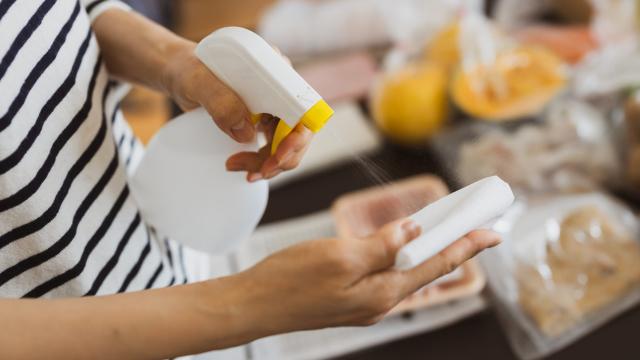Mixing flavours and functions is a basic skill in cooking: Add lemon juice for acid, parmesan for umami, you get the idea. But with cleaning products, combinations aren’t just the sum of their parts. Some can be harmful to your health.
While it may be tempting to throw a cocktail of cleaning products at a dirty bathroom, or kitchen or [insert grubby space name here] to really get it to sparkle, a lot of caution needs to be taken.
Many folks may not know this, but you can cause serious damage if you accidentally combine a dangerous mixture of cleaning products. So, to help save you the headache going forward, we’ve put together a list of cleaning combo no-nos.
Here are the pairings that you must avoid:
Bleach and ammonia
When these two are mixed, a chemical reaction produces chloramine gas, which can irritate your eyes and nose. It can also cause breathing problems, including wheezing and, in severe cases, pneumonia.
Glass and window cleaners often contain ammonia, as do several other cleaning products—check the label. Urine also contains ammonia, so if you’re mopping up after a kid’s or pet’s accident, be sure to clean up all the urine before using another product.
Bleach and vinegar
Mixing bleach with any acids, including vinegar, can cause an even more toxic chemical to form: chlorine gas. (You may recognise this from the news or history books; it’s an infamous agent of chemical warfare.)
Like chloramine gas, chlorine gas irritates eyes and mucous membranes including the nose and throat, and can cause lung damage at high doses or with prolonged exposure.
Rubbing alcohol and bleach
Mixing these two gives you chloroform, a gas that has been used as an anesthetic. It also irritates eyes and mucous membranes and can have effects on the nervous system and heart. In large doses, it too can be fatal.
Acetone, found in some nail polish removers, also makes chloroform when combined with bleach.
Just don’t mix your cleaners, ok?
The three above are the most toxic combinations you’re likely to create accidentally, but plenty of other mixtures are ill-advised. For example, hydrogen peroxide and vinegar make a corrosive liquid; it may damage the things you clean, or irritate your skin.
Baking soda and vinegar can each act as an effective cleaner on their own (baking soda is abrasive, vinegar is acidic) but when you mix them together, they neutralise each other. Yeah, the foaming is fun to watch, but it’s just the effect of the two products cancelling each other out.
Bottom line, use your cleaners according to the directions on their label and don’t mix them.
This article has been updated since its original publish date.

Leave a Reply
You must be logged in to post a comment.